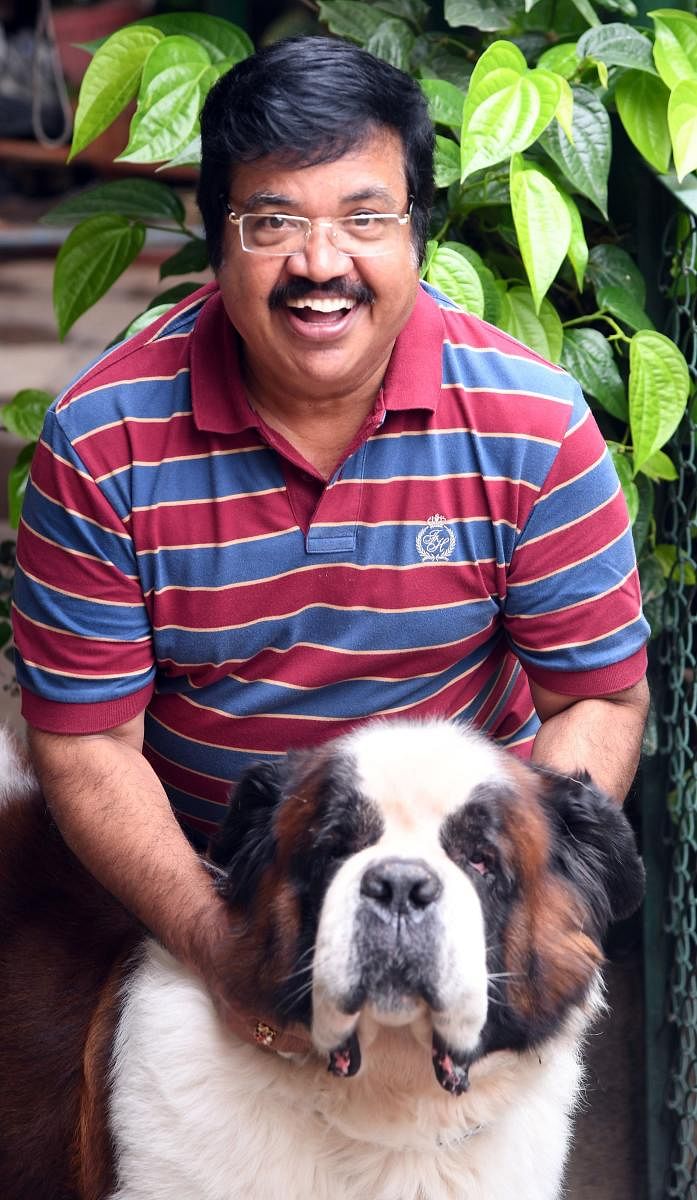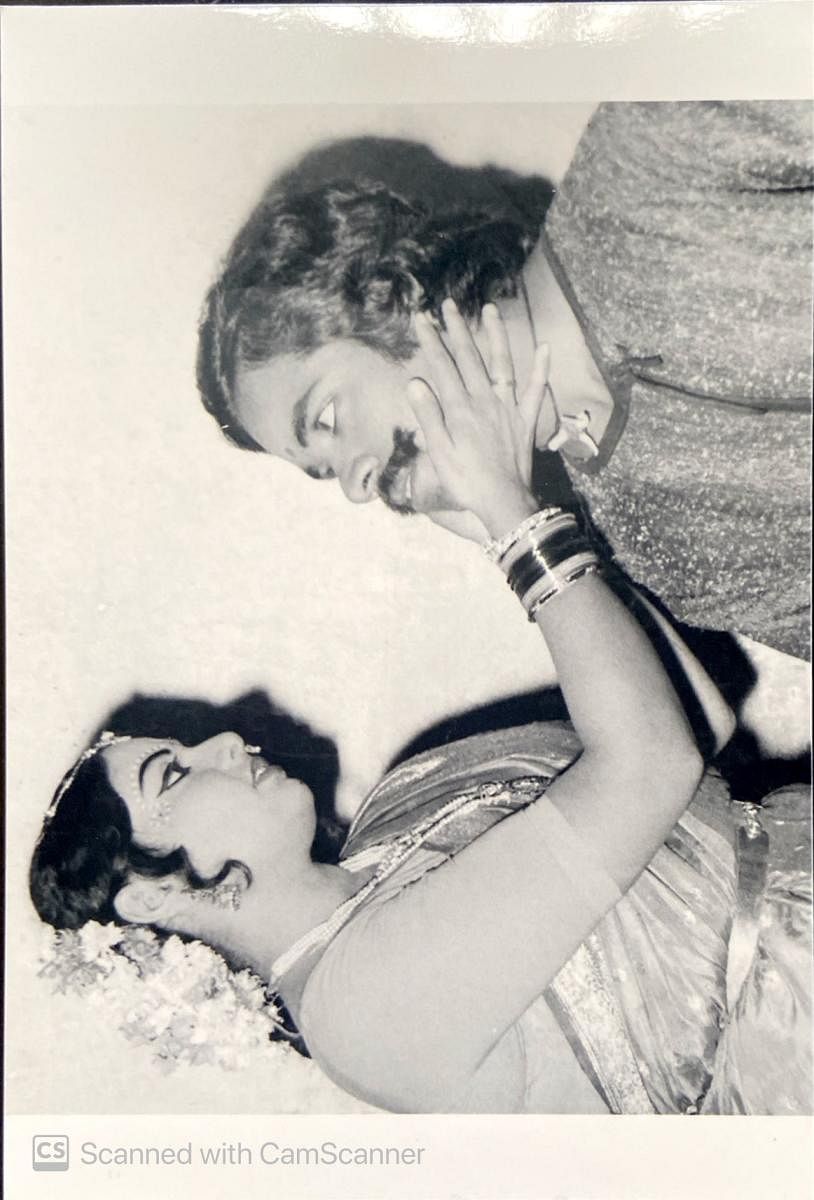

Sundar Raj, a veteran of more than 200 films, has a simple philosophy on acting in cinema. “If you want to be an actor, be natural,” he says. “Your performance shouldn’t appear forced to the viewers. You need to be realistic in your approach to a character,” he adds.
Sundar is a theatre giant, who learned the craft from legendary personalities. Among the many bigwigs in the field of drama, his mentor B V Karanth stands out for Sundar.
“He is amazing and unique. In theatre, I don’t see another director reaching the level of Karanth. Of course, there is Prasanna, who became popular with his group ‘Samudaya’ and C R Simha directed a particular type of plays.
“But Karanth is a man who breathed a fresh lease of life to theatre and mesmerized the Indian audience. Some of the plays he directed -- ‘Hayavadana’, ‘Jo Kumarswami’, ‘Sattavara Neralu’, and ‘Gokula Nirgamana’ -- were so different from each other. I think after Ebrahim Alkazi, Karanth is the only director of that calibre in Indian theatre,” he says.
Sundar feels he was destined to be in art and culture. “We moved to Bengaluru from Srirangam, Tamil Nadu, when I was three years old. My father M N Krishnaswamy is an ex-serviceman. My mother, Vijayalakshmi, was a huge movie buff. In Bengaluru, I am from Basavanagudi, which is a cultural hub. Stage shows, concerts, and festivals were the way of life for people there. Maybe that's where it all began for me. My days at National College too influenced my interests in acting. For that, I thank my teachers G R Kantharaj and H Narasimhaiah,” he says.
Talk about theatre and Sundar can go on and on about it passionately. In the early phase of his career, forming the group ‘Benaka’ in 1974 was a special milestone.
“To perform all over the country, our team needed an identity. We had actors who worked in the cinema as well. So we named our team ‘Bengaluru Nagara Nataka and Chalanachitra Kalavidharu or in short ‘Benchinaka’.
“Then it was YN Krishnamurthy (legendary journalist) who suggested we change it to ‘Bengaluru Nagara Kalavidharu’ or ‘Benaka’. Under the group, we performed seven plays across the country. We had personalities like TS Ranga, TS Nagabharana, and Chandra Kumar Singh pioneering this troupe. Today, ‘Benaka’ is 50-year-old and is headed by Nagabharana and myself.”
A shift to films was inevitable. In front of the camera, Sundar craved for character-driven roles. Through meaningful roles, he wished to create an impact on society. Acting, for him, was not just to entertain but to enlighten also. That is why he loves the 1970-80 phase.
“I feel when I started off, I got really satisfying roles. ‘Kaadu’ (1973), ‘Chomana Dudi’ (1975), ‘Thabbali Neenade Magane’ (1977), ‘Ondanondu Kaladalli’ (1979), ‘Anveshane’ (1983), ‘Thappida Thala’ (1978), ‘Sankaranthi’, 'Chandanada Gombe' (1979) and ‘Praya Praya Praya’ (1981) were the films that made me a household name in Karnataka,” he says.
Sundar considers the next phase, till the 2000s, as a forgettable one. “I was just a commodity in films during that period. There were no roles written exclusively for me. Earlier, directors wrote roles with my talent in mind.
“For example, in ‘Ondanondu Kaladalli’, there was Shankar Nag and Sundar Krishna Urs in important roles. While watching the first copy of the film, I told director Girish Karnad that my character needed more layers. He took that as serious feedback and added two more scenes. Today, the scene where actor Bhagyam -- who played my wife-- and I enact an animal instinct before making love on the eve of the battle is still remembered. When I went to collect Shankar Nag's Best Actor award at the International Film Festival in 1977 in Delhi, Shashi Kapoor hugged me and praised my performance,” he explains.
"This was the kind of experience I missed on film sets until S Narayan and Baraguru Ramachandrappa began offering me meaty roles in the post-2000s phase," he adds.
Sundar picks an important aspect that differentiates theatre and cinema. “In theatre, there exists a unique togetherness. Nobody is a ‘star’ there. In cinema, sometimes, an ‘actor’ in you gets lost in the quest to attain stardom. For instance, in a play involving CR Simha, there were other actors equally good and important as him. And they all received enough space to perform, unlike in cinema, where roles are edited out,” he feels.
Pramila Joshai, Sundar’s wife, is also an actor. They make a power-couple. “In the film industry, she is my senior. We did three films together. She came to films because she was the bread-winner of her family. We ran a tyre business but I worked in films because of my passion for acting.
“In fact, she played a significant role in my life during the recession in the mid-1980s. There were no films being made then and I was part of amateur theatre groups that didn’t pay the actors. Pramila took me to professional groups and she was the first person to pay me for a play,” he says.
The couple’s daughter, Meghana Raj, is an established actor in multiple languages today. Sundar heaps praise on her decision-making skills. “She is a better thinker than both of us. We were glad the legendary K Balachander offered her the lead role in ‘Krishnaleelai’. Although the film didn’t see the light of day, we felt it was special because even Pramila and I were introduced by Balachander in Tamil films. Later, Meghana predominantly worked in the Malayalam industry, which is known for quality storytelling. To see her grow so popular there was a proud moment for us,” he says.
The untimely death of his son-in-law and actor Chiranjeevi Sarja has left the family shaken, says Sundar. But he hopes time will heal everything. “He was the pillar of our house. His passing away is indigestible, especially when you know your daughter is pregnant. We need to have patience in this aspect. Meghana is slowly gaining strength. I wish God doesn’t punish us anymore,” he says.
While he has no regrets in an eventful career, Sundar hopes there are solutions for some of the problems ailing Sandalwood. "Many unscrupulous people are coming inside the industry and destroying its harmony. It's high time film bodies like Kannada Film Directors' Association and Kannada Film Artists Association worked in tandem with the Film Chamber and stopped things that are bringing disrepute to the industry," he signs off.